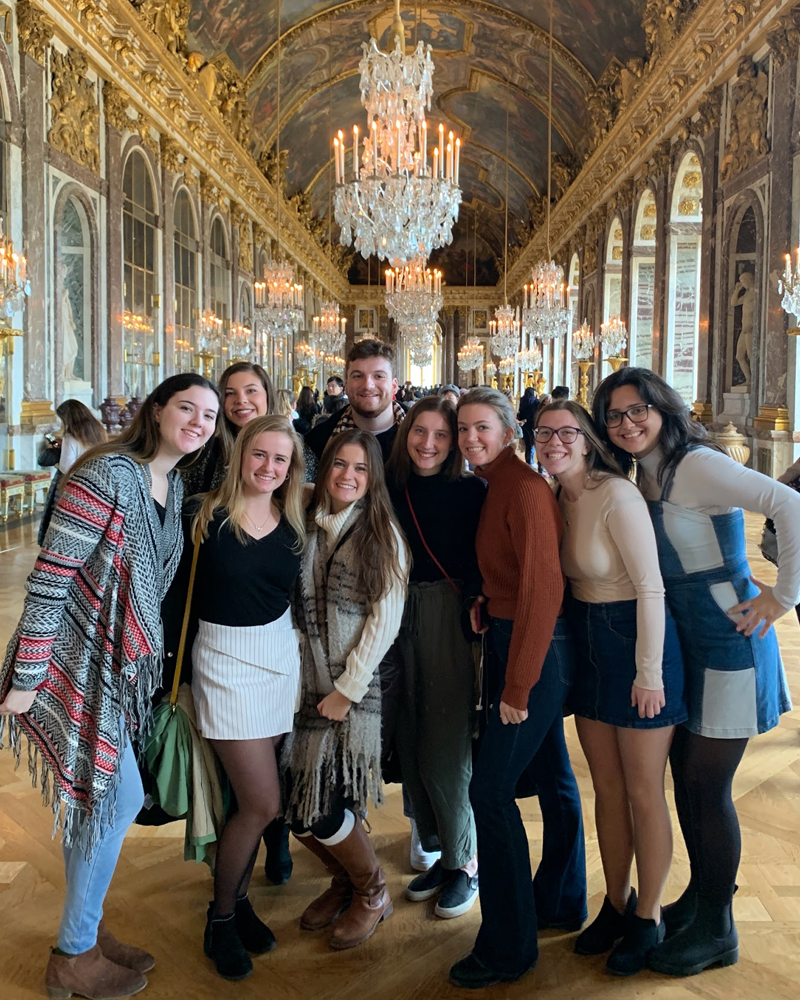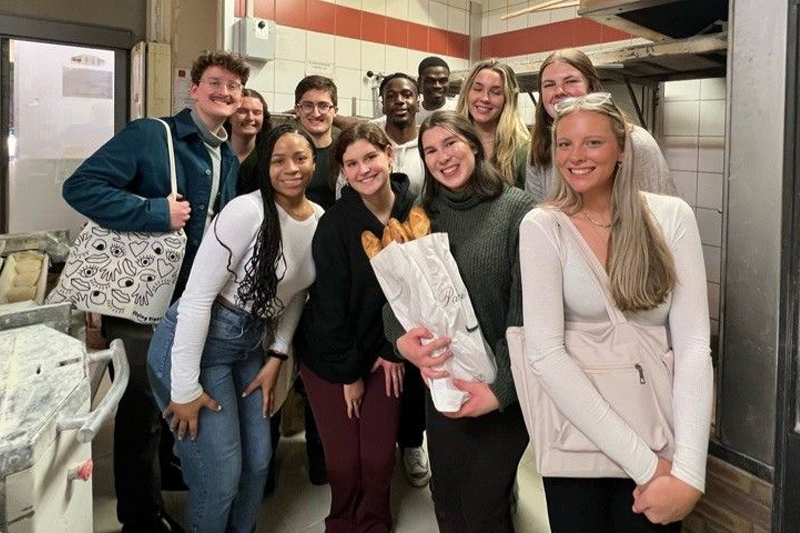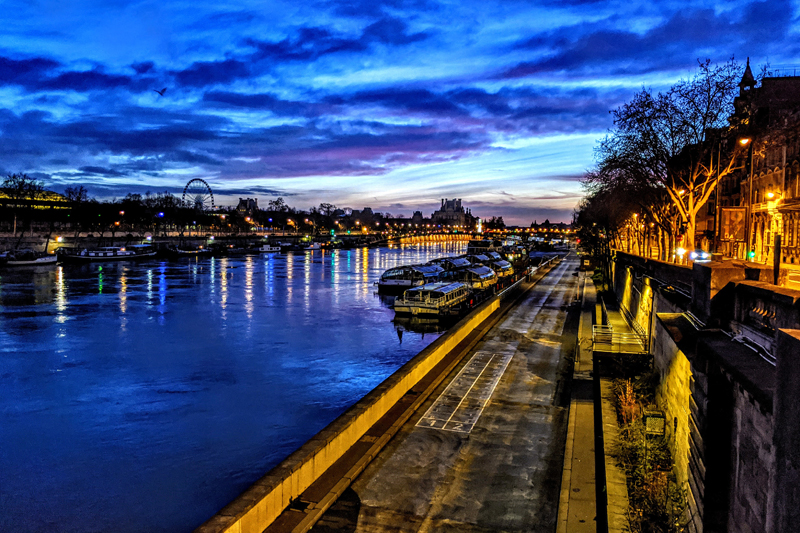


Study the story behind the science in Paris
Photos courtesy of Christopher Trimby October 27, 2023
UD Professor Christopher Trimby shares insight and expertise on studying abroad
Science and scientists are part of a living, breathing world, and the straightforward discoveries that are presented in textbooks often have remarkable backstories.
In Paris, France, UD’s Christopher Trimby, assistant professor of biological sciences, teaches a course that explores a specific scientific discovery, or set of discoveries, and the events that shaped them.
The current discovery being used is that of Jean-Baptiste Denis and the first blood transfusions in humans, which Trimby uses as a way to “explore the science of the cardiovascular system and the historical, political, religious and downright petty ego-based events (including murder!) that shaped his work (and the work of his competitors).” This approach could easily be translated to other scientific discoveries in other locations, and Trimby hopes to start exploring some of those in future study abroad trips.
This historic understanding can also help his students draw parallels to modern times — and to the political, religious and broader communications contexts that shape scientific progress.
“With current public and political discourse around a wide-range of scientific topics, from climate change, impacts of pollution and vaccination (to name a few) it is easy to see how societal preferences can influence the science being done,” Trimby said.
Here, Trimby shares more about his experiences teaching overseas.

What’s the difference between teaching material in Delaware vs. abroad?
When this course is offered as part of a study abroad program, the goal is to immerse ourselves in the place where that semester’s topic was primarily taking place. This allows us to better understand the context of that scientific breakthrough and, in many cases, walk in the actual footsteps of the primary figures. For example, in Paris, when the course topic is blood transfusions, our classroom is less than 100 yards from where the first transfusions took place! And, understanding those contexts and how they shaped the discovery process is our main goal.
Fill in the blank. Students who choose this study abroad experience tend to be…
STEM majors who are interested in careers in health professions — though they aren't the only ones!
What’s your advice to anyone traveling to Paris for the first time?
There is so much to see and so many "bucket list" places to visit that you can't see them all in one trip unless you race from place to place and don't spend any actual time to soak it in. So, pick a shorter list of things and also try to get off the beaten path a bit to visit smaller places. Those can be the best and most interesting. Also, do a food tour — and do it early in your trip.
Paris is exciting and fashionable, and it can feel like you want to have this fast-paced hectic trip, but Parisians feel very strongly about taking the time for the things that matter. Enjoy your espresso, or your glass of wine. Experience it! There is no rush.
What has Paris taught you?
When we picture Paris, we tend to think of rude people who hate American tourists. That isn't the case. Parisians just tend to be more reserved, don't often randomly talk to strangers, and expect a certain set of interactions. When traveling anywhere, it is important to try to learn about how the locals act, what they expect and the cultural norms of how things work.

Any obscure pieces of trivia about Paris that you love sharing at parties?
I find all of the stories about the origin of the baguette really interesting [one posits that the easy-to-rip dough was invented to stop French metro workers from having to carry knives to cut their loaves of bread; another claims Napoleon created it for easy carry; other theories abound]. But it is hard to separate fact from fiction. So, it makes for a good conversation piece but I have never done the homework to find out the “truth.”
What’s something from Paris that you’d love to see the rest of America adopt?
I really like that wait staff seem to be paid an actual salary and tipping isn't expected, so they don't hassle you constantly and aren't rushing you. You can just relax and enjoy yourself.
Do you do anything differently now, as a result of your time spent there?
All the things I love about being in Paris don't really translate to my life here, since I don't live in a city where I can walk everywhere or go to a street market on weekends. I am trying to force myself to not rush through meals, and just savor a cup of coffee and a book, or a glass of wine and time to relax.
What’s your most memorable study abroad story?
We had to navigate a transit strike last time, along with the yellow vest protests in Paris during January 2020. That made life interesting but also helped connect us to a Parisian/French tradition of protests and strikes. I wish we would have been reading Les Misérables for one of the courses — that would have been a perfect alignment.

Study abroad
Students who would like to learn more and explore study abroad options for the 2024 Winter Session and beyond should contact UD’s Center for Global Programs and Services, which can provide information about the application process, scholarships and financing. Please also visit the UD Abroad Blog for student perspectives on the study abroad experience.
From Delaware to the World
2023 marks the 100-year anniversary of study abroad, pioneered at the University of Delaware in 1923 when UD language professor and World War I veteran Raymond Kirkbride took eight students to France for their junior year. Today, UD boasts more than 100 study abroad programs in 40-plus countries and has an international student population that hails from over 100 countries. For more, visit udel.edu/studyabroad100.
Contact Us
Have a UDaily story idea?
Contact us at ocm@udel.edu
Members of the press
Contact us at mediarelations@udel.edu or visit the Media Relations website

